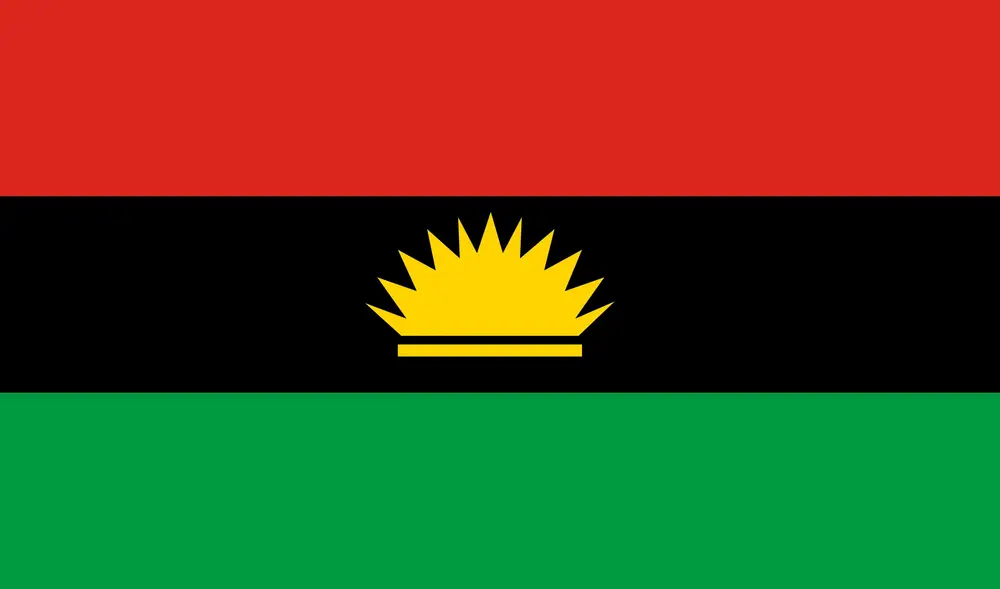An injustice to history, the conspiracy of silence and denial: Reflections on The Biafran War, 50th Anniversary (1970-2020)

Marcus Tullius Cicero stated that we study history not to be clever in another time, but to be wise always. History empowers those of the present to analyze, learn, and most of all, avoid the mistakes of the past. The renowned American anthropologist and writer, Jared Diamond, said that we study the injustice of history for the same reason we study genocide, and for the same reason psychologists study the minds of murderers and rapists… to understand how evil comes about. A way to honor in history, is to highlight and study the mistakes of the past in order to avoid repeating them.
This past month we observed the 50th anniversary of the end of the Biafra War in Nigeria, which started on January 15, 2970. It is a month beclouded with emotions, thoughts, memories, worries, and questions around what happened, how it happened, the ill of the war, the injustices to the Biafrans, and where they are today after a devastating crisis. Biafra was, for some, an image of a hungry child, victim of war, and needing. The Biafra story is beyond mere need of humanitarian aid; the Biafra story deserves more international attention and is begging to be addressed. By remembering, we give justice to the people who perished in the tragedy.
May 30, 1967
General Chukwuemeka Odumegwu Ojukwu, after discussions and the vote of the Joint Consultative Assembly, comprising of the Chiefs and Elders of the Eastern Regional Government, declared the Independent Republic of Biafra on May 30, 1967 (Ojukwu, 1989). Several incidents led to this declaration, including the slaughtering of 30,000 Igbos (Smith, 2014) in Northern Nigeria and the displacement of over 300,000 in an anti-Igbo campaign which eventually led to riots. There were two presidential coup d’états’ as a result of the political unrest, misappropriations, irregularities and corruption charges; first in January 1966 and then in July of 1966.
July 16, 1967
Nigerian Biafra war broke out against Igbos in the Eastern region. This war lasted 2 years and 6 months and ended as one of the worst genocides in the 20th century (Heerten & Moses, 2014); however it was largely ignored and downplayed by the international community. Their collective attitude was at best passive blindness, and at worst willful ignorance. Its dire result is no more evident than in Nigerian socio-political space of today.
It should be remembered that during the war, Nigeria was one of the top oil exporters and the richest in Africa (Klieman, 2012). Nigeria’s crude oil exploration was booming. This exploration took place in the south of Nigeria, under the jurisdiction of the seceding Republic of Biafra. This financial interest could have made the lives of any independence movement members seem increasingly more expendable.
Aftermath
It is estimated that between two and three million deaths occurred as a result of the war, including about one million dying from starvation (Moses & Heerten, 2017; Smith, 2014). The deaths from starvation was a direct result of a decree the Nigerian government enacted, blocking all relief and food for the victims caught in a war zone. This decree led Nigerian fighters to shoot down a Swedish plane with relief (Fast, 2014). Kwashiorkor, an illness caused by malnutrition, broke out and became the leading cause of death for children during the war.
On this 50th anniversary, we honour the children who died of hunger, starvation, and kwashiorkor. We honour the young mothers who gave their lives for their children. We honour the brave young women who provided nursing services and died in active service (Forsyth, 2015; Soyinka, 1994). We honour the brave men who died trying to save their families (Soyinka, 2007). We honour the soldiers who gave up their lives at the war fronts to save the new nation they believed in. May they continue to be at peace in the world beyond.
References and recommended further reading:
Achebe, C. (1972). Beware, Soul Brother: Poems. Heinemann Educational.
Achebe, C. (2012). There Was a Country: A Personal History of Biafra. Penguin UK.
Adichie, C. N. (2008). Half of a Yellow Sun. Knopf Doubleday Publishing Group.
Fast, L. (2014). Aid in Danger: The Perils and Promise of Humanitarianism. University of Pennsylvania Press.
Forsyth, F. (2015). The Biafra Story: The Making of an African Legend. Pen and Sword.
Heerten, L., & Moses, A. D. (2014). The Nigeria–Biafra war: Postcolonial conflict and the question of genocide. Journal of Genocide Research, 16(2–3), 169–203. doi.org/10.1080/14623528.2014.936700
Klieman, K. A. (2012). U.S. Oil Companies, the Nigerian Civil War, and the Origins of Opacity in the Nigerian Oil Industry. Journal of American History, 99(1), 155–165. doi.org/10.1093/jahist/jas072
Moses, A. D., & Heerten, L. (2017). Postcolonial Conflict and the Question of Genocide: The Nigeria-Biafra War, 1967–1970. Taylor & Francis.
Ojukwu, C. O. (1989). Because I am involved. Spectrum Books Ltd.
Smith, K. E. (2014). The UK and ‘genocide’ in Biafra. Journal of Genocide Research, 16(2–3), 247–262. doi.org/10.1080/14623528.2014.936703
Soyinka, W. (1994). The Man Died: Prison Notes of Wole Soyinka. Vintage.
“The views represented in this opinion piece do not necessarily represent those of the Willy Brandt School of Public Policy.”
~ The views represented in this blog post do not necessarily represent those of the Brandt School. ~